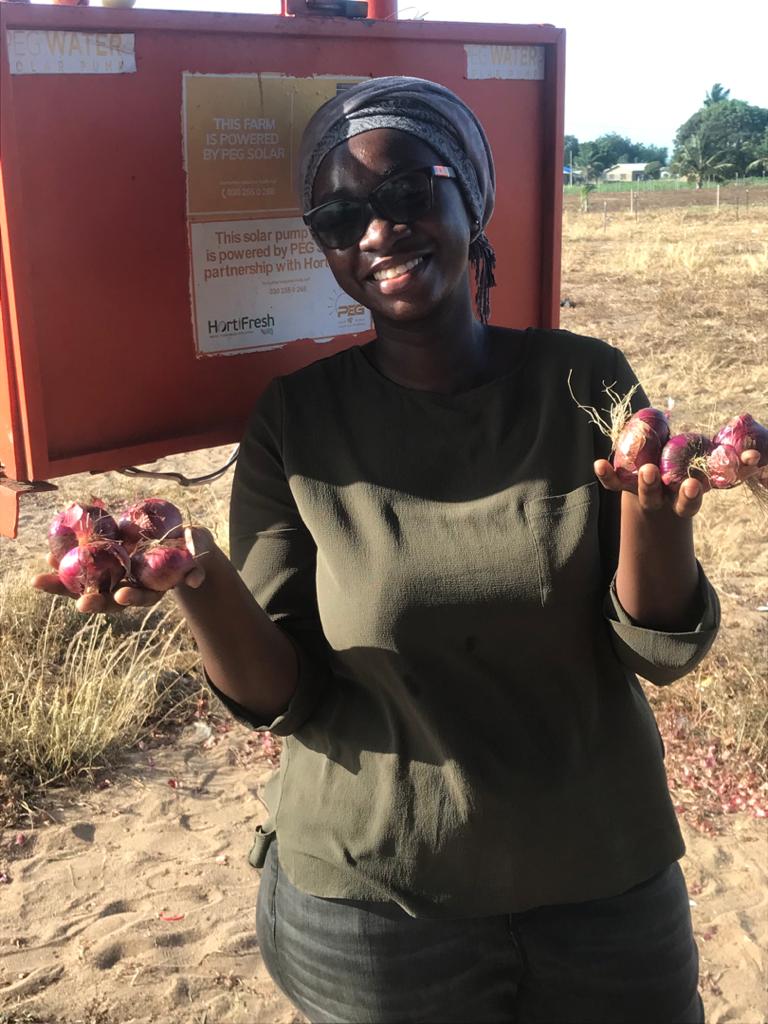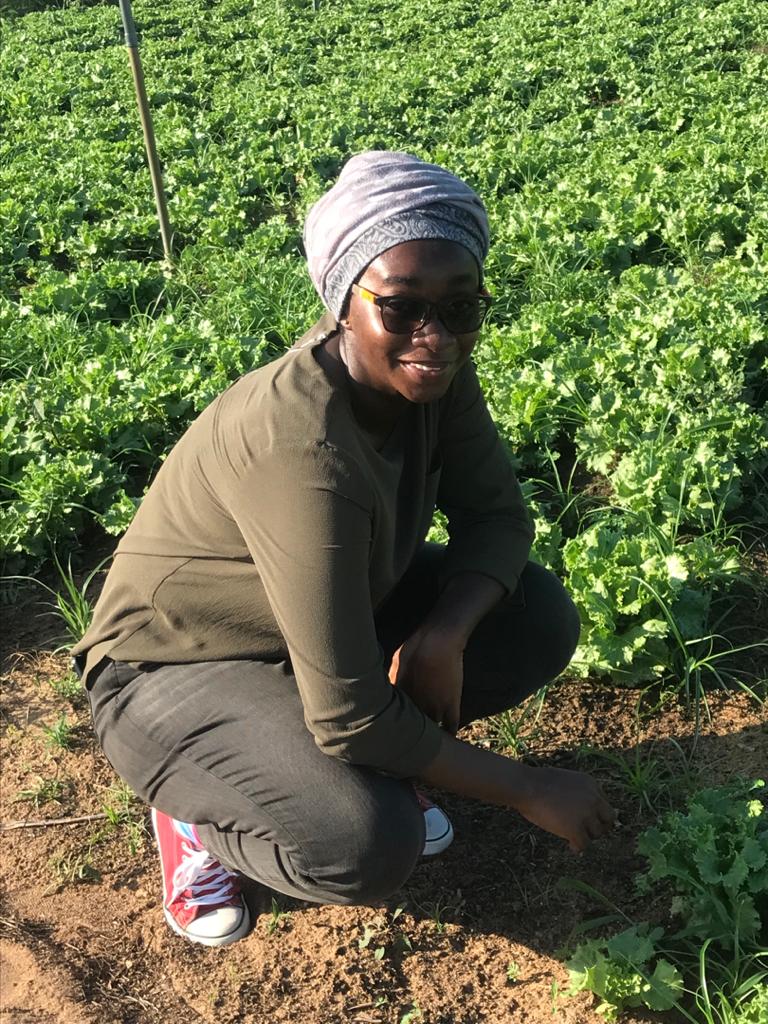Ramla Keelson was earlier this year awarded an ‘innovation internship’ with partners of the Feed the Future Innovation Lab for Small Scale Irrigation (ILSSI), namely the International Water Management Institute (IWMI) and PEG Africa.
During her internship, Ramla Keelson is working with PEG Africa, which is a private sector organization financing and deploying solar power in West Africa, to develop workable and targeted business models that can help increase women and youth farmers’ investment in and use of solar-powered irrigation pumps. IWMI provides research and guidance for her study of PEG Africa’s solar irrigation pump business.
From your experience so far, how do you think solar irrigation could help women and youth farmers in vegetable production in Ghana?
Solar irrigation can help make water available for the production and consumption of more nutritious crops such as vegetables, and in that way maximize crop yields and farm incomes. Using solar irrigation, farmers can save on energy costs as no fuel costs are incurred.
This increases the savings of these farmers, enabling them to invest in expanding their farms and taking up other off-farm business activities. With extra money, women can support family expenses and improve household livelihoods.

Farmers are also able to spend less time irrigating, compared to irrigating using cans and calabashes, and to save on labor costs. With issues of climate change, the use of solar energy is environmentally friendly as it is pollution free, compared to diesel- or petrol-powered pumps.
What kind of interventions are you testing or investigating during your internship with PEG Africa?
PEG Africa is currently serving both men and women farmers with one, standard business and finance model. But, to critically address the needs of women and youth farmers, who are underserved when it comes to innovative technologies, we need to consider the needs of women and youth when promoting small scale irrigation. For example, where would a woman farmer prefer a pump to be situated to serve her needs, such as washing or cooking or for irrigation? Also, based on her needs, would the woman farmer prefer a fixed or mobile pump?
I am hoping to receive valuable feedback from select women and youth farmers by using a questionnaire, developed based on a gender tool kit, to survey how to enhance their access to and possibilities to adopt solar irrigation technologies. This is to help PEG Africa best serve women and youth farmers with appropriate marketing strategies and finance models that best suit them.

How do you hope that farmers and businesses might benefit from your findings?
My findings will help businesses like PEG Africa improve how they assess women and youth farmers’ creditworthiness. Solar irrigation businesses often use a scorecard system to assess whether a client can qualify for credit, based on certain risk criteria, and that’s how the company determines whether the client can purchase solar irrigation pumps. To make such scorecard systems more inclusive of women and youth farmers, businesses could, for example, incorporate women farmers’ membership of associations in their risk assessments, considering that some of these associations can guarantee or finance the purchase of pumps for these women. This would help better serve women and youth farmers.
In addition, findings from my study will help farmers practice climate-resilient agriculture and ensure year-round production. Through availability of water, crop yields are increased with farmers generating more farm income to improve livelihoods. Also, in accessing solar irrigation pumps, farmers can benefit from multiple uses of water, such as for irrigation, for livestock rearing, and for household domestic use.
How do you envision building on the experiences from this internship in your future career?
As an agripreneur, I intend to capitalize on this experience to better understand how to access and use solar irrigation in crop production. Through the internship, I will be able to build on my social network to take up future opportunities in agribusiness.


